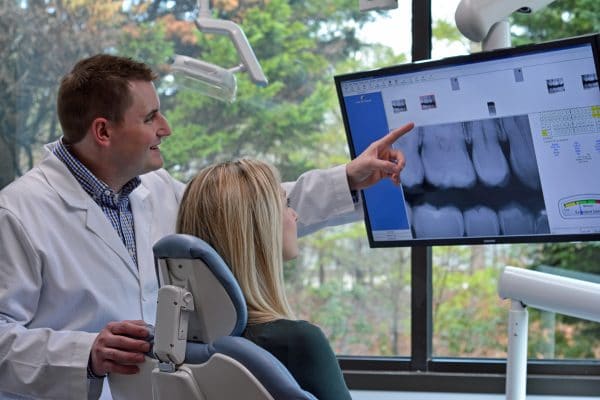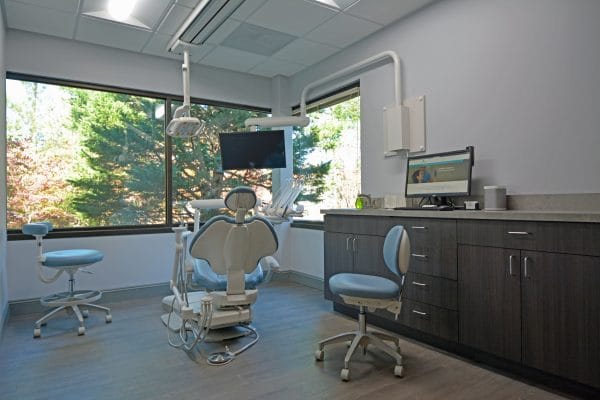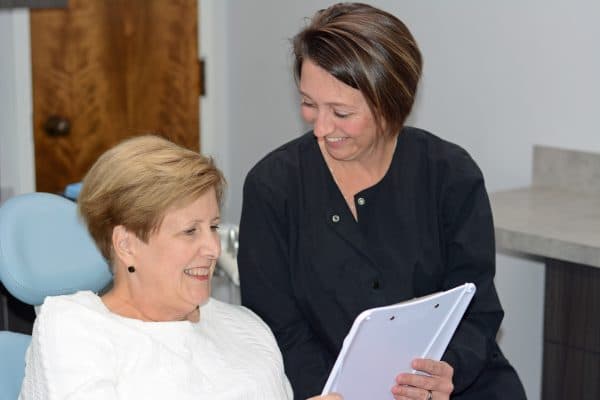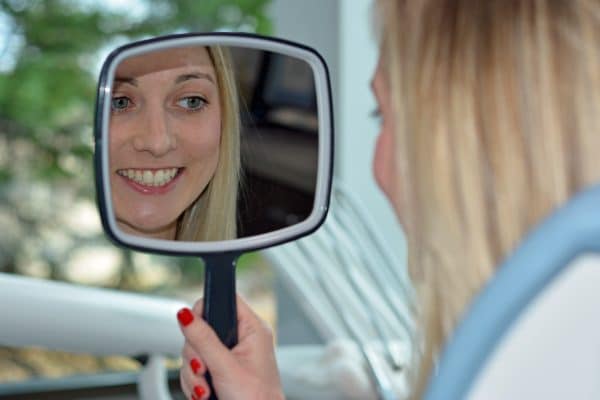Sleep Apnea Chapel Hill
fall in love with your smile
Sleep Apnea Therapy Options Available
According to the National Sleep Foundation, approximately 18 million Americans struggle with sleep apnea. Sleep apnea can develop for a variety of reasons, but the most common causes are due to the muscles in the throat becoming weakened, the jaw being too small, or the tongue being too large, all of which can result in obstructions to the airway.
These issues can result in patients snoring loudly and developing breathing issues in the night that can cause them to wake up gasping for air. Because of these interruptions to sleep, patients with sleep apnea often report feelings of restlessness or lethargy.
The most common signs associated with sleep apnea include the following:
- Loud snoring
- Waking up in the night multiple times gasping for air
- Chronic headaches in the morning
- Throat is extremely dry upon waking
- Chronic fatigue
- Brain fog or memory loss
- Mood swings, depression, and other mood disorders
Diagnosing Sleep Apnea
Sleep apnea is most commonly discovered due to a patient’s partner complaining about their snoring while sleeping. If you are told this is an issue, your dentist may be able to diagnose the issue as being related to sleep apnea by looking at the surfaces of your teeth to look for signs of grinding. Patients who suffer from bruxism (grinding of teeth) caused by sleep apnea can develop additional oral health issues due to the damage caused by the teeth, which can allow for bacteria to gather and develop into periodontal diseases.
Dangers of Sleep Apnea
A common and dangerous misconception about sleep apnea is that it is not a significant health issue. Although the snoring may be troublesome to your partner, sleep apnea if left untreated can result in much more serious health issues occurring, including the following:
- Headaches
- High Blood Pressure
- Increased Risk of Diabetes
- Heart Attack
- Depression
- Fatigue
- Diminished Sex Drive
- Heart Disease
- Memory Loss
- Obesity
- Stroke
If you suspect you may have sleep apnea, be sure you do not put off getting tested and treated. Doing so may have a profoundly positive impact on your overall health and prevent these issues from developing.
Treatment Options
There are a range of treatment options available to treat sleep apnea. Certain treatments are designed to potentially correct the root cause of your sleep apnea while others are meant to simply help reduce the symptoms. Talk to your dentist about which treatment option is right for you.
- Lifestyle Change: The good news and bad news about sleep apnea is that in many cases, it can be corrected by changing your daily habits and improving your self-care. For patients who are committed to pursuing nonsurgical methods and treat this issue naturally, there are several options available. Exercising more, being conscious about eating healthy, and reducing or eliminating the use of nicotine and alcohol can have tremendous results in addressing sleep apnea symptoms. Taking active steps to reducing stress, either through yoga, mindfulness, massage, or reduced work load can also help reduce or even eliminate sleep apnea issues.
- Surgery: If you have made changes to your daily habits and are still suffering from sleep apnea, there are surgical procedures that can be performed that will widen your breathing passageways.
- CPAP Machine: The CPAP Machine is one of the more common treatment options for sleep apnea, although some patients do not have a favorable experience with them. The CPAP machine blows pressurized air through a mask that is placed over your nose and mouth while you sleep. This is an effective way to keep your airways open, but some patients find it is too uncomfortable to fall asleep wearing.




Dental Devices
Patients who have a mild or moderate case of sleep apnea will likely be recommended a dental device. These devices can be worn in addition to using a CPAP machine. The two main types of dental devices are:
- Mandibular Advancement Devices (MADs): Similar in appearance to retainers or mouth guards, MADS can be snapped over the dental arches and effectively push the tongue and lower jaw forward. In doing so, the throat muscles are less likely to collapse, which allows for normal breathing. One of the benefits of using MADs is they can be easily adjusted to maximize the effects.
- Tongue Retaining Mouthpieces: Like MADs, tongue retaining mouthpieces use suction to keep the tongue forward, which prevents the airway from collapsing. These devices are generally suggested for patients whose jaw is not able to be adequately repositioned.
Benefits of Dental Devices
- Comfortable: Most patients feel dental devices are more comfortable and easier to sleep with than CPAP machines
- Less equipment to manage which makes travelling and sleeping easier
- CPAP machines can cause patients to develop dry noses due to the air pressure, which is not an issue with dental devices
Drawbacks to Dental devices
- Tension, soreness, or pain in the jaw
- Sore gums and/or teeth
- Dry mouth
- Dental restorations can loosen
- Possible damage to jaw bite/position

High-Quality Dental Care
At Cornerstone Family Dentistry in Chapel Hill, all our services are performed with the patient in mind. We want you to feel comfortable in the dental chair, confident in our work, and most importantly, we want you to fall in love with your smile again. If you would like to schedule an appointment or if you have any questions about cosmetic procedures that we offer, please contact us at (919) 595-1010.
